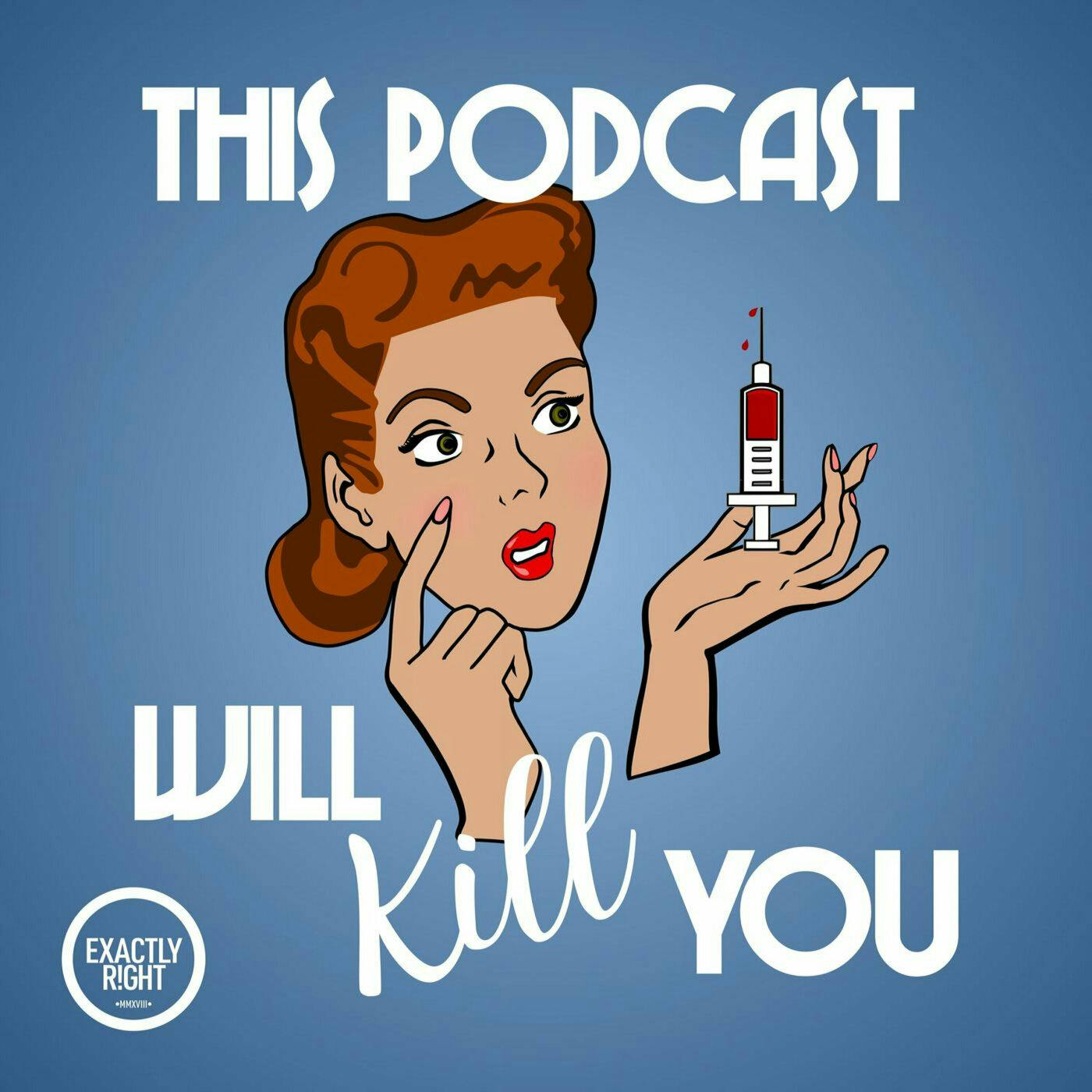
This Podcast Will Kill You
Author: Exactly Right Media – the original true crime comedy network
Subscribed: 64,084Played: 2,090,893Description
This podcast might not actually kill you, but Erin Welsh and Erin Allmann Updyke cover so many things that can. In each episode, they tackle a different topic, teaching listeners about the biology, history, and epidemiology of a different disease or medical mystery. They do the scientific research, so you don’t have to.
Since 2017, Erin and Erin have explored chronic and infectious diseases, medications, poisons, viruses, bacteria and scientific discoveries. They’ve researched public health subjects including plague, Zika, COVID-19, lupus, asbestos, endometriosis and more.
Each episode is accompanied by a creative quarantini cocktail recipe and a non-alcoholic placeborita.
Erin Welsh, Ph.D. is a co-host of the This Podcast Will Kill You. She is a disease ecologist and epidemiologist and works full-time as a science communicator through her work on the podcast. Erin Allmann Updyke, MD, Ph.D. is a co-host of This Podcast Will Kill You. She’s an epidemiologist and disease ecologist currently in the final stretch of her family medicine residency program.
This Podcast Will Kill You is part of the Exactly Right podcast network that provides a platform for bold, creative voices to bring to life provocative, entertaining and relatable stories for audiences everywhere. The Exactly Right roster of podcasts covers a variety of topics including science, true crime, comedic interviews, news, pop culture and more. Podcasts on the network include My Favorite Murder with Karen Kilgariff and Georgia Hardstark, Buried Bones, That's Messed Up: An SVU Podcast and more.
























so the issue for me with this discussion is how sepsis is more of a "random" sequelae of any serious infection. not a primary issue.
Switched off the minute you said person who menstruates. It's WOMAN. You're scientists. jeez.
I mean I'm a DVM Leptospirosis isn't a "tropical disease" and is totally common place in the US. I vaccinate for it multiple times a day.
I'm thankful for my dermatologist who, in my teens, told me I had to use sunscreen and avoid the sun or die. She was joking (but not really), and it helps that I never liked to tan. Still, I've had melanoma twice, and was lucky to catch it before it caused bigger problems. And I totally identified with the first hand account: skin cancer is still cancer. It's scary, and we have to take care. Amazing episode, as usual!
How do you spell the man's name? The one that started with a G I think
great episode !!very informative
I love learning about these disasters and hate that they happen
Thai you ladies for helping me understand as usual! I'd like to recommend another autoimmune disease. Addison's disease! it's hereditary, JFK had it. my dog has it. I'd like to learn more in the way only you can tell it!
Thank you for this! Our neighbor's sweet granddaughter has Turners and is 25 years old.
sepsis. it's a messpsis
the title makes me think of the show House. Was it ever Lupus? they suggested it every time 😂
you little tb's keep on kickin!!!
it's ironic that, as scientists, you talk about the language attitudes and concealment yet not once have you said the word women or girls but say people and people who menstruate. shame on you and shame on your degrees.
"stop it right now"!!!! ABRACADABRA = go away Malaria!!!!!
I love the interviews you guys do . it brings such a personal touch to these diseases
also thanks for the history of the March of Dimes and how Roosevelt got on the dime. I never knew this story. Thanks
excellent episode. also I think it was great to include the interview .. gave such a personal touch on the subject!!!
yep roasting you for not liking cats!!!! but still gonna listen to you guys because you are both so awesome!!!!!
thanks for the 💩 show . the history of cholera covers interesting
my husband has had gout since he was 19. so it's not always just older people.